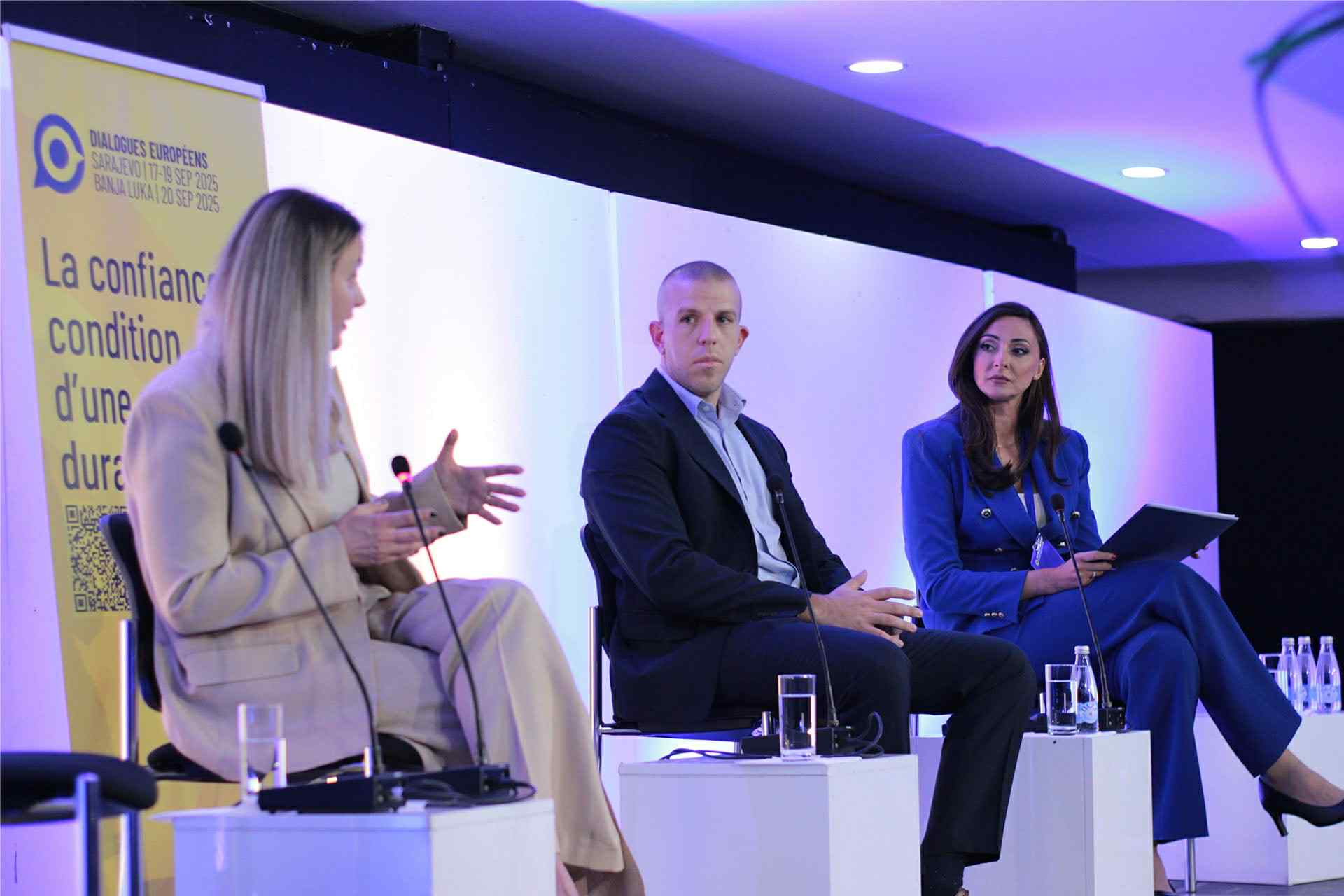
Bosnia and Herzegovina (BiH) became the first country outside of the European Union (EU) to host European Dialogues, entitled Trust: A Condition for Lasting Peace.
These discussions addressed the impact of armed conflicts on the state, institutions, organizations, and society, with a particular focus on building trust. Trust, as such, is of vital importance for Europe and is tested on a daily basis.
The European Dialogues are part of the Shared Horizons project, created in response to Russia’s invasion of Ukraine, which is organized by the French Ministry for European and Foreign Affairs, the French Embassy in BiH, and the French Institute in collaboration with local partners. In BiH, these included the 7th Sarajevo Fest and the BiH Historical Museum in Sarajevo, and the Republika Srpska Contemporary Art Museum in Banja Luka.
French Ambassador to BiH Francois Delmas noted that the war in Ukraine has energized discussion in every European country, and that it became clear to the French Institute two years ago that “European cooperation should be discussed at this historical moment.”
European Dialogues are held in France, Germany, the Czech Republic, Poland, Lithuania, the Netherlands, Finland, Belgium, and Romania. However, Ambassador Delmas stressed that for a united and free Europe, these dialogues must extend beyond the EU to candidate countries, the first of which was Bosnia and Herzegovina.
“We do not unite states, we unite people. Europe is built through cooperation between societies,” said Ambassador Delmas.
According to Aida Hodžić, the BiH Assistant Minister of Foreign Affairs for Multilateral Relations, the dialogues in Sarajevo “confirm our European commitment as well as the support of France.”
“We are proud that Bosnia and Herzegovina is the first in the region to host the European Dialogues. And Sarajevo, with its history and spirit, shows the extent to which diversity can be a source of richness,” Hodžić added.
Cooperation Promotes Peace and Trust
Rene Troccaz, Special Envoy for the Balkans from the French Ministry for Europe and Foreign Affairs, stressed the importance of cooperation. “We need to engage partners around a specific goal. What I mean by that is that reconciliation, per se, is necessary, but it’s not the only goal. We work on reconciliation in order to achieve something. In the case of Bosnia, that ultimate goal is Europe,” said Troccaz.
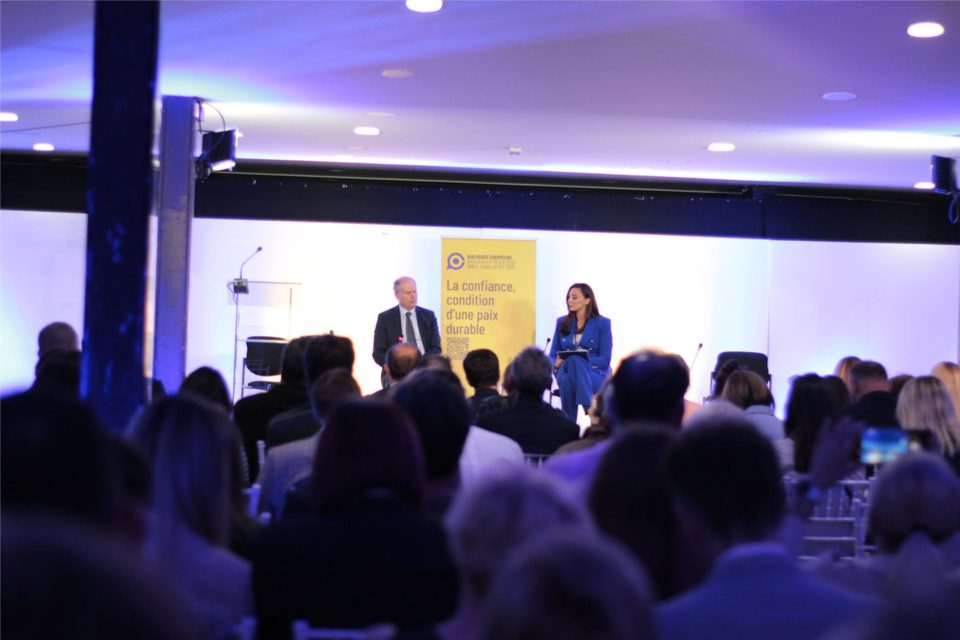
On the other hand, he added, BiH has work to do concerning “good governance and the rule of law. We need to have a justice system that works and works well.”
According to Troccaz, cooperation can foster peace and trust in a way that top-down reforms alone cannot. “We need cooperation between citizens, companies, NGOs, between all the stakeholders of the society,” he stressed.
Oleksandra Matviichuk, the director of the Kyiv non-governmental organization Center for Civil Liberties and winner of the 2022 Nobel Peace Prize, delivered a video address about the importance of documenting war crimes.
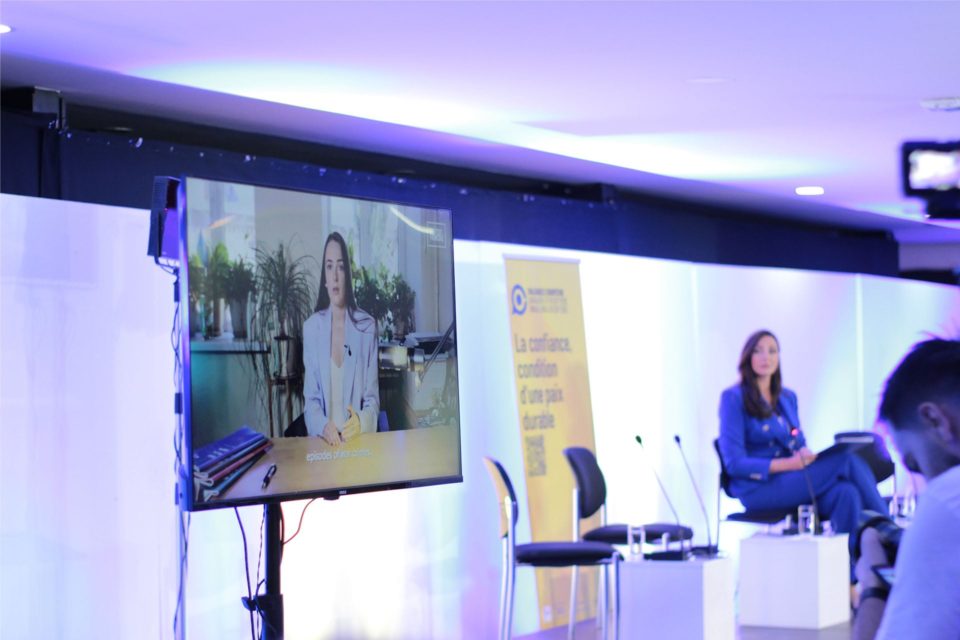
She noted that they have documented more than 89,000 war crimes in Ukraine, which, although a huge number, is only the tip of the iceberg. War crimes are integral to Russian warfare in its efforts to break the population’s resistance to occupation. She explained that they document more than just violations of the Geneva and Hague Conventions.
“We document human pain. While this war turns people into numbers, what we are literally doing is we are returning people their names,” Matviichuk said, emphasizing that justice is a condition for peace in Ukraine.
New Perspectives, Understanding, and Empathy
Velma Šarić, the founder and president of the Post-Conflict Research Center (PCRC), explained how PCRC contributes to peace building in BiH and the region.
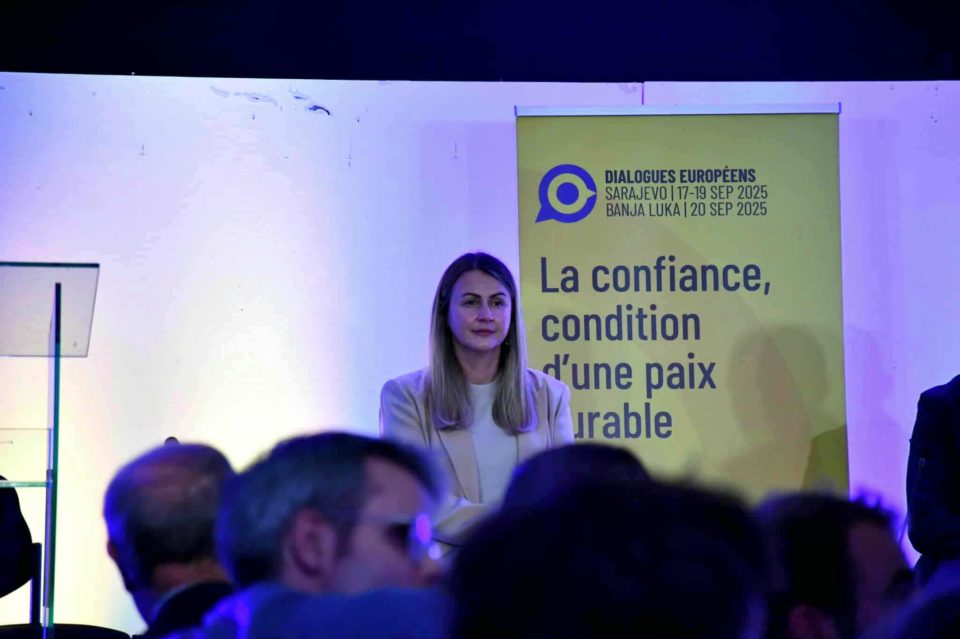
She highlighted art, the media, informal education, and youth initiatives as powerful tools in the fight against ubiquitous one-sided and nationalist narratives. In BiH, where people have different and very painful memories of the past, she stressed that these narratives sow fear, anger, and mistrust between ethnic groups. This is why PCRC uses the tools at its disposal to foster new perspectives, build understanding and empathy, and show that peace is possible.
Šarić emphasized that education is a major obstacle to reconciliation in BiH, citing the country’s 56 ethnically segregated schools. In this system, known as “two schools under one roof,” children of different religions and ethnic backgrounds go to separate classrooms and are instructed according to different curricula.
PCRC, in cooperation with its partners, produced the teaching manual Lessons From the Past for the Future, which has been part of the curriculum of the Sarajevo Canton school system for two years. This manual helps to ensure that students can learn about the past in an objective and transparent way.
Šarić also discussed the role of civil society in transitional justice processes. She noted that when genocide was committed in Srebrenica in July 1995, no one could have imagined that the survivors would define the processes of justice and memorialization related to the genocide.
“Justice and memorialization on this scale would not have been possible without their testimonies and the brave fight of the survivors,” added Šarić.
Europe as Hope for All
Šarić was joined on the panel by Burak Doluay, co-founder and director of Social Tech Lab from Cyprus. This organization works with PeaceTech – technological products or services aimed at peacebuilding within communities, the state, and the region. As Doluay explained, these are “solutions that focus on predicting, preventing or solving problems that negatively affect the economy, the environment, human rights, and democracy.”
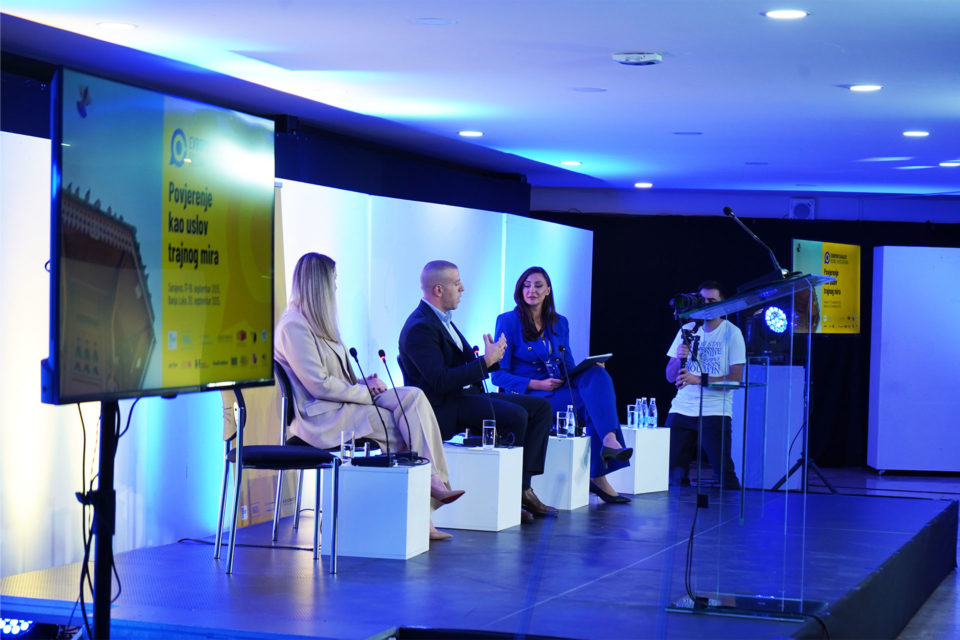
He emphasized that people from post-conflict areas, even from different sides of a conflict, all need opportunities for progress and growth.
“We see that the entrepreneurs are all the same, and they have many overlapping characteristics. These people are opportunity seekers. These people are looking to create a common future. We see this when they are looking for work,” Doluay said.
He added that Cyprus would not be where it is today if it were not for the EU.
“Perhaps we would not have the chance to do what we are doing today. That is why Europe is hope for everyone. Because no matter what direction politics goes, there are young generations with whom we work. There is a more European identity being created,” Doluay said.
The European Dialogues in Bosnia and Herzegovina brought together researchers, civil society representatives, international organizations, the media and activists in order to contribute to sustainable peace by building trust.






